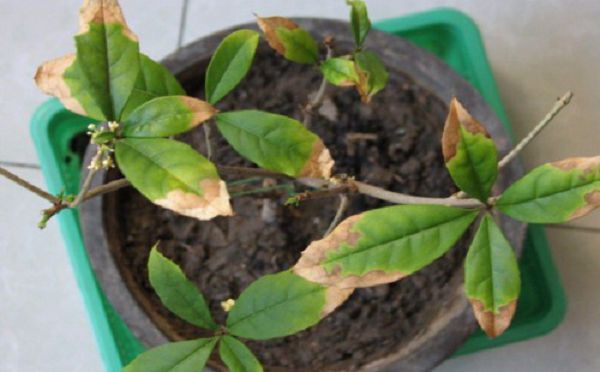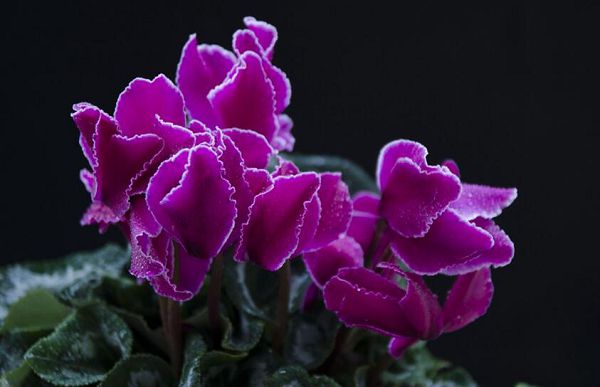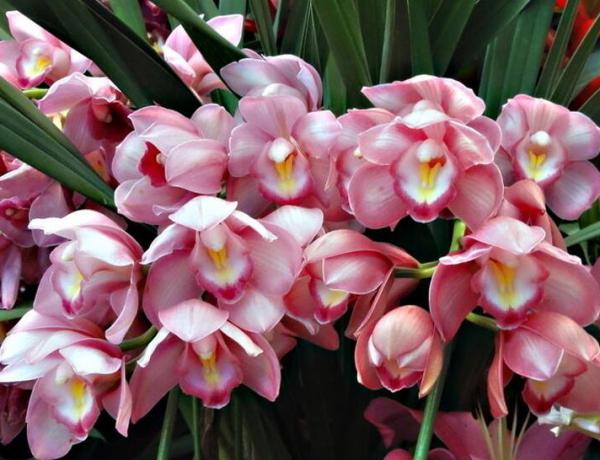What if the leaves of potted sweet-scented osmanthus trees are dry?

Potted sweet-scented osmanthus trees often have high ornamental value in the case of luxuriant branches and leaves and evergreen all the year round. at the same time, they can emit fragrant flowers when they bloom, and sometimes people like to make bonsai with old piles of sweet-scented osmanthus. However, whether potted sweet-scented osmanthus trees or bonsai sweet-scented osmanthus trees, if they want to maintain a good growth state and beautiful plant type effect, the correct maintenance and management means can not be missing.
Like most potted flowers and plants, the conservation and management of sweet-scented osmanthus trees focus on the management of light and temperature, water and fertilizer, pruning and shaping. The application of scientific and reasonable means of management and protection can naturally make potted sweet-scented osmanthus trees flourish, but if there are problems in conservation and management, it is easy to cause growth problems, thus affecting ornamental. So, what happens when the leaves of potted sweet-scented osmanthus trees become dry? What should I do in such a situation?
Practice has proved that the phenomenon of leaf drying, scorch and even leaf discoloration of sweet-scented osmanthus trees is generally caused by improper maintenance and management. It is mainly shown in the following aspects:
1. Lack of light
Sweet-scented osmanthus trees usually have high requirements for light and like adequate light. If the potted plants are in a shady environment for a long time, it is easy to have dry leaves, scorched edges and other phenomena. In this case, we need to provide it with light time gradually until the light is fully received. In this way, the leaf color of the plant will gradually return to normal.
2. Temperature discomfort
Potted sweet-scented osmanthus trees are suitable to grow in the temperature environment of 15-28 ℃. If the temperature is too high or too low, it will cause poor growth. The most obvious manifestation is that the leaf color changes and the leaves become dry. Therefore, we should flexibly regulate and control according to its suitable growth temperature in the process of maintenance and management.
3. The humidity is too low
If the potted sweet-scented osmanthus tree is in a dry environment with high temperature and high heat for a long time, the amount of water evaporation will naturally be very large. If there is no timely replenishment of water and often moisturize the appropriate humidity, the old leaves of the plant will become dry. Usually we can cool and moisturize by spraying and watering, so that after the humidity in the air increases to more than 60%, the drying of leaves can basically be effectively curbed.
4. Lack of nutrients
If potted sweet-scented osmanthus trees lack nutrients for a long time, they are also prone to leaf drying. Especially in the flowering stage, if there is a lack of fertilizer, it will cause nutrient deficiency, which will not only affect the growth of the plant, but also reduce the quality of flowering. Even in the usual maintenance and management process, we also need to properly intake potash fertilizer to improve our disease resistance and stress resistance.
5. Poor ventilation
Osmanthus trees like to grow in a well-ventilated environment, and the air should be clean and pollution-free. If you are in an environment with poor ventilation for a long time or suffer from the damage of polluted air, its branches and leaves are prone to dry up. It can be seen that improving ventilation conditions is very important for potted sweet-scented osmanthus to maintain normal growth.
6. Suffer from disease
The phenomenon of scorched or dried leaves of sweet-scented osmanthus trees is largely due to the infection and invasion of various bacteria. The most obvious symptoms are brown spot, blight, and even anthrax. These diseases can cause great harm to branches and leaves. The common practice is to isolate the source of the disease immediately, cut off the branches and leaves of the infected disease in time, improve ventilation and light conditions, and the best fertilization management. If it is serious, it should be sprayed with drugs in time.
Related
- Fuxing push coffee new agricultural production and marketing class: lack of small-scale processing plants
- Jujube rice field leisure farm deep ploughing Yilan for five years to create a space for organic food and play
- Nongyu Farm-A trial of organic papaya for brave women with advanced technology
- Four points for attention in the prevention and control of diseases and insect pests of edible fungi
- How to add nutrient solution to Edible Fungi
- Is there any good way to control edible fungus mites?
- Open Inoculation Technology of Edible Fungi
- Is there any clever way to use fertilizer for edible fungus in winter?
- What agents are used to kill the pathogens of edible fungi in the mushroom shed?
- Rapid drying of Edible Fungi



